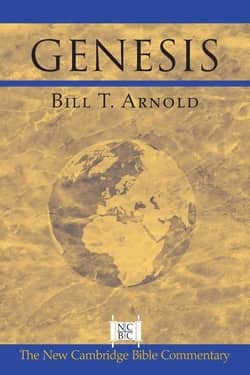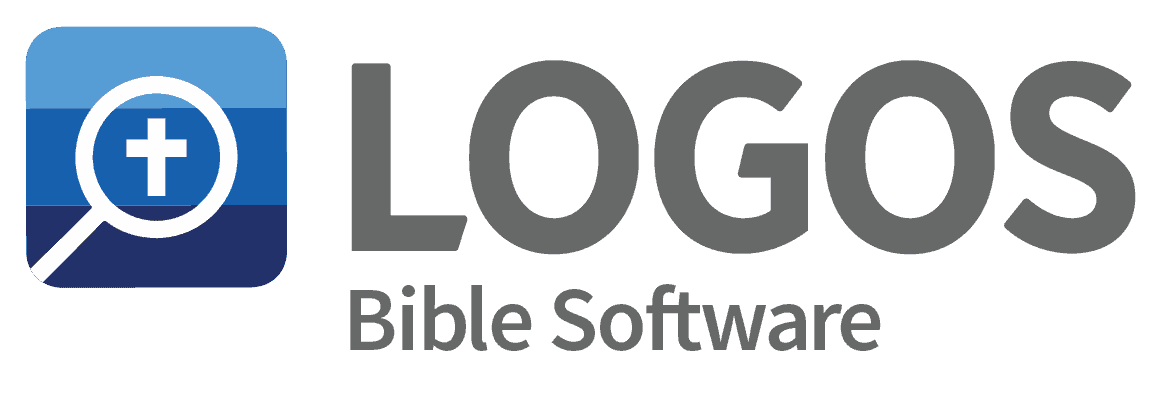Dr. Bill T. Arnold is the author of the Genesis commentary in the New Cambridge Bible Commentary series.
Dr. Arnold is the Paul S. Amos Professor of Old Testament Interpretation where he has served on the since 1995.
Dr. Arnold has written or edited twelve books, including most recently Introduction to the Old Testament (New York and Cambridge: Cambridge University Press, 2014). Please see all his books on his Amazon author page.

Arnold served as editor of the Old Testament notes for The Wesley Study Bible (Abingdon, 2009), and contributed its study notes on Genesis. He also served as co-translator of Genesis for the Common English Bible (Abingdon, 2011).
In 2010, Dr. Arnold was awarded a Lilly Faculty Fellowship for his proposal to study the oneness or singularity of God in the Old Testament. In 2003, he was named alumnus-in-residence at Hebrew Union College-Jewish Institute of Religion in Cincinnati, Ohio.
Dr. Arnold is an elder in the United Methodist Church and pastored churches for six years before moving into Extension Ministry. He holds his ordination with the Kentucky Annual Conference of the UMC. His current Charge Conference is First United Methodist Church, Lexington, Ky.
7 Questions for Bill Arnold

1. What previous research and/or personal interests led you to this project and helped prepare you to write this commentary on Genesis (New Cambridge Bible Commentary)?
Well, of course, all of us are interested in Genesis! I sometimes tell my students that Genesis is every Old Testament scholar’s sandbox. We all dig around in it because it’s too interesting and important.
We all have our own ways of reading it, and trying to make sense of it, especially the first eleven chapters. It’s really important work. Too much of the rest of our theological understanding depends on how we read Genesis 1-11; and then the ancestral narratives demand just as much attention.
After two decades of seminary-level teaching, I was aware of the critically important role Genesis has in our theological understanding of God’s work in the world. As I said in the first sentences of this commentary: “The book of Genesis addresses the most profound questions of life. Who are we? Why are we here? And, more to the focus of Genesis, who is God, how does God relate to the universe, and what are the origins of God’s chosen people, Israel?”
It certainly has fascinating literary features, but more than that, Genesis is a constant source for pastoral ministry. No matter our theological camp, Genesis demands our attention. So it was an honor to devote those years to studying and writing on Genesis.
2. Who is the intended audience for this commentary? Would it benefit pastors? professors? students? lay Christians in the local church?
As the series’ statement has it, the New Cambridge Bible Commentary “aims to elucidate the Hebrew and Christian scriptures for a wide range of intellectually curious individuals.”
The commentary is based on the NRSV, which is included in the pages of each volume. But the commentary portions are based on the Hebrew original. My procedure in writing the commentary was to read each text in Hebrew, checking the Greek of the Septuagint and other versions as appropriate for textual clarity.
I then wrote up my preliminary comments before turning to the NRSV itself and then the secondary literature (other commentaries, monographs, etc.). I tried to limit the amount of technical language or historical details in the commentary, but left some of that in the footnotes. This process was an amazing experience, and in some ways, transformative for me personally.
I will always benefit from the work I did there, and hope others benefit as well, of course. This last point is interesting, because in some ways, I write for myself. I know that sounds selfish, but I learn so much doing this and I also get great satisfaction from sharing what I’ve learned with others.
3. What is unique about this commentary? What contribution does it make to studies of Genesis?
The New Cambridge Bible Commentary itself has certain distinctives. But in particular, I wrote the volume on Genesis with two methodological commitments. First was the literary genre of the book of Genesis in light of recent scholarship on ancient Near Eastern literature generally. Both the Primeval History (Gen 1-11) and the ancestral narratives (Gen 12-37[50]) have been illuminated by other ancient literature.
As much as we have talked and written about these generic parallels for years, I believe students, pastors, and sometimes scholars, still aren’t always paying attention to the importance of genre, and especially for a book like Genesis. I tried to take full advantage of those parallels as they relate to this unique genre, although I admit more could and needs to be done in this area.
My second methodological commitment was a determination to combine traditional historical-critical scholarship (source, form, and redaction criticism) with more recent synchronic approaches (narrative criticism and discourse analysis).
Most commentaries focus on one or the other, and while many today are talking about the need for a more holistic approach, drawing on all these approaches as most appropriate to individual texts, very few are actually doing it. I haven’t done it perfectly here, but this was an attempt to combine synchronic and diachronic approaches in the interpretation of Genesis.
My assumption is that one should read the text twice, once for its compositional history as a means of informing the second reading, which emphasizes the synchronic structure of the whole.
4. What section or passage of this commentary was particularly memorable to research and write? Why?
That’s nearly impossible for me to answer. I can remember specific moments (and passages) while working on this commentary. I especially remember writing on Gen 1, Gen 6-9, and the Joseph Story. And I’ve continued to write some articles flowing from that work, because it generated other ideas that could not be included in a relatively brief commentary.
5. What personally edified you in writing this commentary, increasing your affections for Christ?
I remember being moved by the grace and compassion of God toward Adam and Eve after their sin, eventually concluding that everything Yahweh did in response was driven by love (Gen 3:21-24), which surprised me a bit. And I gained a new appreciation for God’s covenant with Abram/Abraham (Gen 15, and 17), as well as many other features of Genesis that prepare one for reading the Gospels.
It has become even clearer to me that we simply cannot understand the depth of God’s love and the efficacious work of Christ’s death on the cross until we plummet the depths of Genesis first (well, really, the whole Old Testament).
6. Besides your commentary, what are your top recommended books (commentaries or otherwise) on Genesis?
Although not a commentary, I benefited a great deal from reading carefully through Herbert Chanan Brichto (The Names of God: Poetic Readings in Biblical Beginnings [New York: Oxford University Press, 1998]), while writing this commentary.
He always inspires me, and gives me a different way of thinking about something in the text that I may have taken for granted. He was one of my professors at Hebrew Union College, and it was almost as though I could hear his familiar voice in that book while I was pouring over the text of Genesis.
But writing on Genesis is like that; it’s as though one is having a conversation with a host of other interpreters and scholars over the centuries, all while listening intently for the voice of God in the text. Of course, the commentaries of Gordon Wenham, Vic Hamilton, and John Walton all have great value. All of us are indebted to Claus Westermann to some degree.
7. What is next for you? What project are you currently working on? How can people follow your work and ministry?
I have been working away on Deuteronomy (NICOT) for some time now, and love what I’m seeing in that book. Eerdmans has given me two volumes for the commentary, so I went back to chapter 1 and started over (I originally started writing the commentary at Deut 12:1, for obvious reasons).
It’s a huge honor to be doing this. I cannot “replace” Peter Craigie’s commentary, but will be trying to say something useful for the next generation of interpreters of Deuteronomy.
I (very) occasionally tweet theological notes and comments @BillTArnold. People are welcome to check me out there.
Own Bill Arnold’s Genesis commentary
The link provided will direct you to this volume via it’s exact ISBN number:
Get Dr. Arnold’s Genesis commentary on Genesis at Amazon
Also see:
Compare the NCBC series to dozens of others on this bible commentary comparison chart
Recent Posts
David Jeremiah, a renowned pastor, author, and speaker, has captivated the hearts of many with his compelling sermons. His messages resonate deeply with diverse audiences, leaving an enduring...
Tim Keller, a distinguished pastor, theologian, and author, has garnered a devoted following through the profound impact of his sermons. In this article, we will explore seven compelling reasons...

